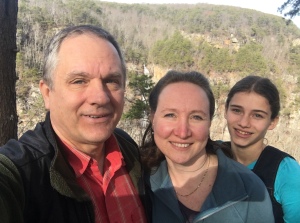 In November of 2000, I (Mike) moved to Russia to help establish a Russian Charity named MIR. A little over a year later I married Olga. Later, the Lord gave us a wonderful daughter, Valerie. Over the years, God has led us and blessed us in many ways.
In November of 2000, I (Mike) moved to Russia to help establish a Russian Charity named MIR. A little over a year later I married Olga. Later, the Lord gave us a wonderful daughter, Valerie. Over the years, God has led us and blessed us in many ways.
We have a home in St. Petersburg, Russia and spend time in the USA, Romania, Montenegro and Estonia. I (Mike)have businesses in the USA and volunteer with Stoneworks International, a mission organization with projects in Europe. I also partner with churches in Uganda and Congo, so I travel a lot. I’m also the Technical Media Director for the Elisabeth Elliot Foundation.
We hope you’ll wander around here, learn more about us, have some fun and see evidence of the goodness of God.